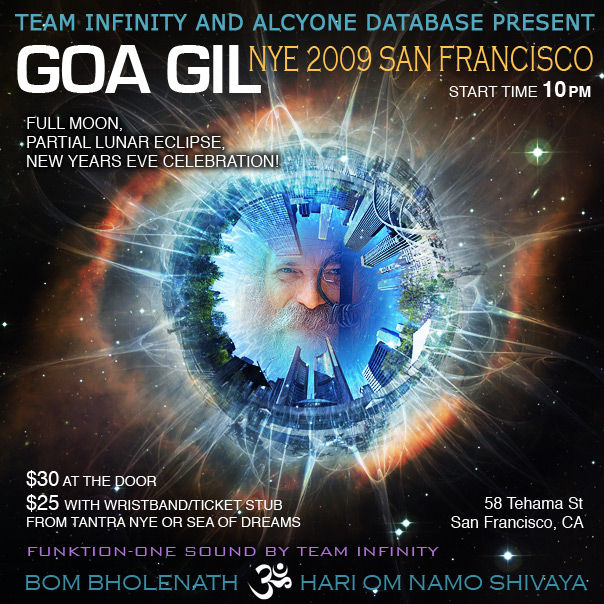Privacy and social networks: a grassroots social network activist’s perspective
Social network sites epitomize the wave of the future, Obama’s strength in 2008, and youth. Â They’re overwhelmingly in favor of civil liberties. Â And civil liberties supporters are getting organized there.
— Social network activism and the future of civil liberties, originally published on Pam’s House Blend
At the annual privacy coalition meeting in Washington DC, Lillie Coney of EPIC asked me to be on a panel on “Cloud Computing and Social Networking” moderated by Rebecca MacKinnon.  Some of the topics she suggested I might want to cover include how the projects I’ve worked on have brought people together on social networks, and where users’ control of personal information did and didn’t matter. Here’s a sketchy version of what I’m thinking of saying ….
- social network activism is a powerful way to reach and engage people who care about the issues but are currently not active supporters. unique advantages include rapid information diffusion through trusted sources, public indications of strength, creating and strengthening bonds between participants, and media attention
- people can participate publicly (changing status, posting links, joining groups, contacting politicians), secretly (forwarding information by private messages or in “friends-only” groups) or passively (consuming information). for secret and passive participants, control of information and privacy is extremely important
- the privacy and civil liberties community in the US has a huge opportunity to change the dynamics of the debate by devoting a lot more resources to social network activism
2010 01 21
Comments Off on Privacy and social networks: a grassroots social network activist’s perspective
Notes from underground: from the Awful Aughts to a blue moon and an embarassment of riches (New Year’s weekend 2009/2010)
#iranelection and a sea of green on Twitter: at the forefront of social network activism
“The first step that I suggest as a solution is that we Iranians, no matter where we live in the world, strengthen the social ties among ourselves…. This is where the power of our social network resides.â€
— Mir Hussein Mousavi, quoted in Ehsan Moghaddasi’s The Green Moharram
Celebrate, brainstorm, anticipate: asset-based thinking 2009/2010
 Judy Dubin of the Cramer Institute suggests looking at a meeting as a musical performance of classical music.  Via that lens, the asset-based thinking discussion list’s last conference call for 2009 was a work for guitar, four voices, and keyboards. It featured a prelude (Eve and I chatting while waiting for others to show up), three movements titled celebration, brainstorming, and anticipation, and a coda (this post and the ongoing discussions).
Judy Dubin of the Cramer Institute suggests looking at a meeting as a musical performance of classical music.  Via that lens, the asset-based thinking discussion list’s last conference call for 2009 was a work for guitar, four voices, and keyboards. It featured a prelude (Eve and I chatting while waiting for others to show up), three movements titled celebration, brainstorming, and anticipation, and a coda (this post and the ongoing discussions).
For abtdisc’ers who couldn’t be there in person, here are some of the highlights.
Whether or not you were there, please share any additional celebration, anticipation, updates, and brainstorming thoughts in the comments … and have a great holiday season, a wonderful end to 2009, and an even better start to 2010!
jon
Third time’s a charm: “The Ad Astra holiday special 3.0”
So it’s a golden opportunity for that classic TV holiday special. You know, the one where production costs are virtually zero because it’s mostly reused clips and stuff shot on one big party set, and various people show up and say hi and we get to hear about what they’re doing now — and their favorite moments from the last year. “A chance to say hi to old friends — and maybe make some new ones????â€
— “A very special Ad Astra holiday” , December 2007
For those of you who have gotten to know me over the last few years, Ad Astra (Analysis and Development of Awesome STRAtegies) was a grassroots strategy/culture change project I led at Microsoft.  Our charter to pursue game-changing ideas, positive focus, and attention to diversity — along with a cool logo and hot pink posters and beanbag chairs — attracted some amazing people. So every year around this time I say hi.
For those who knew me then …
Hiiiiii! (waves)
What’s up?
jon
PS: I hope everybody has a great holiday season, a wonderful end to 2009, and an even better start to 2010! Â Where’s the eggnog?
DRAFT: Want to make meetings better? Qworky is recruiting for a diverse open source project!
Update, December 17:Â Thanks to all for the excellent feedback, here and in email!
I’ll be splitting this into two posts, which will appear on the Qworky blog
Thanks also to those who expressed interest … if you’d like to get involved, stay tuned — or get in touch via the contact information at the bottom of the post.
As a company we view diversity as a vital ingredient to sustained business success. We value unique perspectives and traditionally under-represented viewpoints in the software design process. We welcome collaborators from every walk of life. We welcome people of any gender identity and expression, race, ethnicity, sexual orientation, experience level, discipline, educational background, culture, and political opinion.
— Qworky’s draft diversity statement
Continue Reading »
Demand your dotRights: Facebook gives people “more control” by revealing private their information
We are concerned that the Transition Tool and other changes actually discourage or eliminate some privacy protections that Facebook users currently employ. And we’re still waiting for Facebook to address the privacy issues concerning third party applications that were raised months ago in our petition.
— Nicole Ozer of dotRights, Facebook privacy is in transition — but where is it heading?
Facebook’s message when I logged in today talked about how they were giving me more control of my information and simplifying the privacy settings. Uh-oh. Valleywag thinks it smells like an anti-privacy plot, and PC World’s Tech Inciter suggests watchs out for the “Everyone” setting. Comments on the Facebook governance page are even more critical.
And yeah, sure enough, if I click on “Save Settings” and accept Facebook’s defaults, my status updates, photos, list of family members, etc., become public.  For everyone on the internet to see. Yikes.  And just in time for the holidays, too!
dotRights has the best privacy guide I’ve found so far. Please have a look at it, and share it with your friends — on Facebook and in email.
If you’d like to give Facebook feedback, please do, either directly on Facebook or by signing dotRights’ petition. Twitter coming soon, hopefully 🙂
I’ve got a screenshot below, along with some thoughts about activism — and a comment about software engineering, if you’re into that kind of stuff.
An open letter to President Obama on the Patriot Act (DRAFT)
Draft! Work in progress! Feedback welcome!
The open letter will be published Monday evening, and this will be one of many posts announcing it.
Final version intended for Pam’s House Blend
Andy Sack’s 10 lessons learned (from NWEN’s Entrepreneur University)
I’ve been live-tweeting @asackofseattle’s “lessons learned” presentation from Northwest Entrepeneur Network’s Entrepeneur University.  Here they are in one easy-to-read list:
#10: it takes 5 years to create anything of value
#9: focus on your 1st market longer than you think
#8: beware of shiny object distraction
#7 avoid the rush to nowhere
#6 competition doesn’t kill (early-stage) companies; usually, it’s internal conflict — teams going in multiple directions #nwen
#5 the customer has the answer. check out “outcome-driven innovation”
#4 Two #’s: Customer acquisition cost and lifetime value. focus on ’em; track ’em
#3: GFA (Get F’in Aggressive) “over the last 15months, i don’t know what happened, but his eyes had changed”
#2: KISS
#1: the way you’re framing it from a capital and time perspective is too limited
Thoughts?
jon
2009 11 05
Comments Off on Andy Sack’s 10 lessons learned (from NWEN’s Entrepreneur University)
My favorite day of the year!
Last year, I ended my post with “… what a difference a year makes.” Yeah, really.
One thing’s a constant, though: spending Halloween doing something wonderful with Deborah. Yay!
Happy Halloween, all!
Social network activism and the future of civil liberties
Also posted on The Seminal and Pam’s House Blend
The most recent skirmish on the Patriot Act reauthorization battle ended badly for civil liberties.  Despite passionate speeches all around in the Senate Judiciary Committee public hearings and classified briefings, in the end, only Senators Feingold, Durbin, and Specter stood up for the Constitution. As Marcy Wheeler says, we got rolled.
At the same time, though, the social network activism I discussed in Can Skittles fix the Patriot Act? and on the Get FISA Right blog highlights the opportunity to broaden and recharge the civil liberties community.
Twitter, Facebook, MySpace, Care2, OFA and other social network sites:
- provide a way to engage with Millennials and other diverse groups of people who care a lot about the Patriot Act — but are not currently involved with civil liberties activism.
- make it easy for people to let their politicians know their feelings — and recruit their friends in the process.
- allow civil liberties organizations to get beyond the media blackout and provide accurate information to everybody.
- complement in-person local campaigns like People’s Campaign for the Constitution’s local ordinances and good ol’ fashioned letters-to-the-editor
It’s a powerful narrative. Social network sites epitomize the wave of the future, Obama’s strength in 2008, and youth. They’re overwhelmingly in favor of civil liberties. And civil liberties supporters are getting organized there. As we continue to make progress, every political consultant and politician thinking about a primary or general election challenge in 2010 or 2012 will be paying attention.
Social network activism for civil liberties has made great progress so far. Some simple steps from organizations and bloggers can take things to the next level. Before getting to the suggestions, though, I’d like to discuss the diversity aspects in a little more detail.
Continue Reading »






